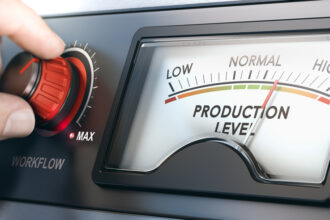Low-carb diets (also known as low-carb diets) are gaining more and more traction in the health and wellness communities.
These diets are promoted as a way to lose weight, lower insulin levels, prevent diabetes, and manage other medical conditions. But, are these diets as good as they are made out to be?
What Are Low-Carb Diets?
Low-carb diets are a way of eating that limits the amount of carbohydrates you eat. Most carbohydrates are converted into sugar, which the body uses for energy. Eating too many carbohydrates can lead to weight gain and other problems.
Low-carb diet guidelines recommend limiting or avoiding foods that are high in carbohydrates. Some eating plans include low-carb foods like whole grains and fresh fruit but limit other carbs.
Low-carb diets can be healthy for some people. However, they don’t always work for everyone. If you are considering a low-carb diet, talk to your doctor. They may recommend a low-carb eating plan or refer you to a dietitian who can help you find a diet that works for you.
The health benefits of low-carb diets
Many people don’t realize that low-carb diets have many health benefits. They can help you lose weight at a steady pace, reduce high blood pressure, and cause your body to burn stored fat for energy.
Eating fewer carbs can help you shed pounds at a steady pace. Many people have a difficult time losing weight because they cut carbs and then yo-yo the weight back. This yo-yo effect isn’t as effective as losing weight with a steady decrease in carbs. Your body will adjust to this reduction in carbs and burn fat more efficiently.
Many people think that low-carb diets are unhealthy and that eating more carbs is better. However, low-carb diets are actually much healthier. Eating fewer carbohydrates can lower your blood pressure and improve your body’s ability to burn stored fat for energy.
Pros of Low-Carb Diets:
Low-carb diets are becoming increasingly popular these days and for good reason. There are several benefits to low-carb diets that make them an excellent option for people of all ages. Here are a few of the most important benefits of low-carb diets:
- Low-carb diets are effective for weight loss.
- Low-carb diets are effective for preventing and treating diabetes.
- Low-carb diets are effective in reducing the risk of heart disease.
- Low-carb diets are effective in reducing the risk of stroke.
- Low-carb diets are effective in reducing the risk of cancer.
- Low-carb diets are effective in improving cognitive function.
- Low-carb diets are effective for improving moods and feelings of well-being.
- Low-carb diets are easy to follow.
- Low-carb diets are affordable.
- Low-carb diets are sustainable.
Cons of Low-Carb Diets:
A low-carb diet limits the amount of carbs you eat. Your daily carb limit is usually around 50 grams or less. Most experts agree that limiting your carb intake will help you lose weight. However, there are some drawbacks to low-carb diets:
- A low-carb diet can cause bad breath, fatigue, weakness, headaches, muscle cramps, and abdominal pain.
- If you restrict your carb intake, your body might need more fuel for exercising. Without exercise, your body will burn fewer calories.
- A low-carb diet can also affect your body’s ability to absorb some nutrients. These include calcium, zinc, iron, and vitamin B. A low-carb diet can also disrupt your health hormones and increase your appetite, which can lead to weight gain.
- Other problems you may experience with a low-carb diet include dizziness, constipation, bad breath, dry mouth, and skin problems.
Keep in mind that the cons listed above affect some people. However, these problems don’t occur to everyone on a low-carb diet.
Should I Try a Low-Carbohydrate Diet?
Low-carbohydrate diets are very popular these days and many people wonder if they should remain on them or not.
Low-carbohydrate diets have been around for a long time. They have recently become popular as the Atkins Diet, South Beach Diet, and Zone Diet, just to name a few. While these diets vary in how they achieve their results, they all follow the same general eating guidelines.
Most of these diets suggest that you should eliminate or reduce carbohydrates from your diet. This, in turn, is supposed to help you lose weight because eating high-carbohydrate foods (like pasta and bread) causes your body to release more insulin than necessary.
When your body releases a lot of insulin, it stores more fat, not muscle. Since carbohydrates provide the body with energy, avoiding them can cause you to feel fatigued.
Low-carbohydrate diets are often used in weight loss programs, but they also help people with diabetes. They are sometimes used to help overweight people with type 2 diabetes, but only under a doctor’s care.

























